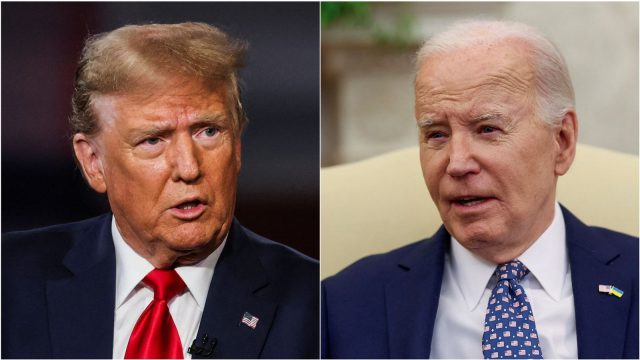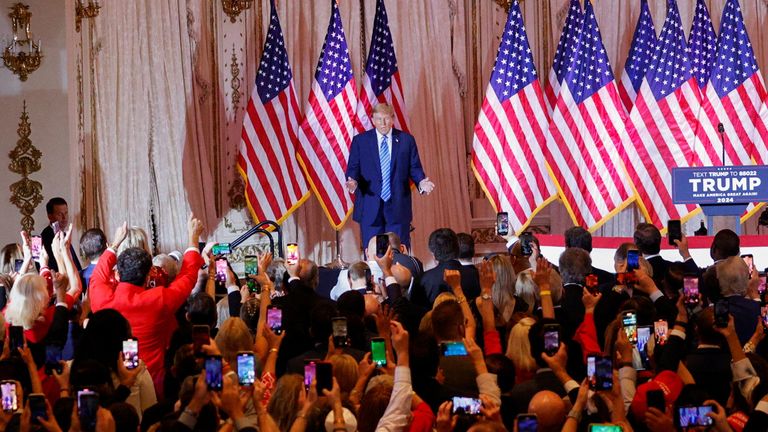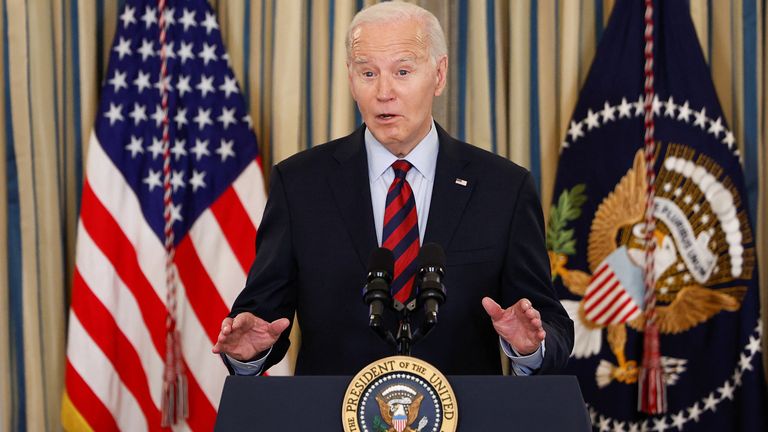US President Joe Biden and his predecessor Donald Trump swept to victory in statewide nomination contests on Tuesday, setting up a historic rematch in November’s election.
On a day traditionally dubbed Super Tuesday – when the most states choose who they think should be candidates – both virtually secured the nomination for their respective parties.
Republican Mr Trump won in Alabama, Arkansas, California, Colorado, Maine, Massachusetts, North Carolina, Oklahoma, Tennessee, Texas and Virginia, brushing aside Nikki Haley.
Meanwhile, Mr Biden appeared to win easily in 14 states, but lost in the US territory of American Samoa and faces a potentially sizeable protest vote in Minnesota, where he is still projected to win.
Despite their clear victories, a rematch between Mr Trump, 77, and Mr Biden, 81 – the first repeat US presidential matchup since 1956 – is one few Americans seem to want, based on opinion polls.
Speaking to a crowd gathered at his Mar-a-Lago home in Florida, Mr Trump described the president as the “worst” the country has ever seen.
“There’s never been anything like what’s happening to our country,” he added, before wrongly adding 15 million people have crossed the southern border from Mexico to the US.
But Mr Biden warned his rival – who is facing a litany of criminal charges, including interference in the 2020 election – is “determined to destroy our democracy”.
“He is driven by grievance and grift, focused on his own revenge and retribution, not the American people,” he said.
“He is determined to destroy our democracy, rip away fundamental freedoms like the ability for women to make their own health care decisions, and pass another round of billions of dollars in tax cuts for the wealthy – and he’ll do or say anything to put himself in power.”
Ms Haley, Mr Trump’s last remaining Republican rival, appeared to suggest she will carry on campaigning despite now having no viable route to the nomination.
“In state after state, there remains a large block of Republican primary voters who are expressing deep concerns about Donald Trump,” her campaign team said, while highlighting her win in Vermont.
“That is not the unity our party needs for success. Addressing those voters’ concerns will make the Republican Party and America better.”
Immigration and the economy are leading concerns for voters in both parties, Edison exit polls in California, North Carolina and Virginia suggest.
A majority of Republican voters in those states said they backed deporting illegal immigrants, with Mr Trump promising to mount the largest deportation effort in US history if elected.
What is Super Tuesday?
Super Tuesday is the day when the most US states choose who they think should be their candidates for president.
In 15 states, plus the US territory of American Samoa, Democrats and Republicans say who they want to see on the ballot come November.
Super Tuesday – an unofficial name that has been used since at least 1976 – is also when the highest number of delegates will be awarded to candidates.
Although voters cast ballots for their preferred presidential candidates, it is the delegates to the national party conventions who ultimately select the presidential nominees for each major party.
Read more:
How does the US election work?
That means candidates need to secure delegates, largely by winning in the primaries, to guarantee their path to the election.
This year’s Super Tuesday, however, has been dominated by two front-runners, which is unusual for a day that usually whittles down a pack to a few.
While Mr Trump and Mr Biden are almost certain to be the candidates, not enough states will have voted until later this month for either to formally become nominees.
















